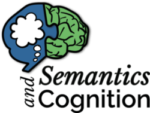
June 2018
Tabudag2018
Broad international linguistics conference
Find out more »June 2019
TABU Dag 2019
40th edition of the international linguistics conference annually held at the University of Groningen - partly organized by members of our team (Iris and Vera)!
Find out more »August 2019
Annual Groningen-Oldenburg workshop on language acquisition
This year's Groningen-Oldenburg workshop on language acquisition will take place on the 19th of August. We have a diverse program with various talks on different topics, from cochlear implants to idiom research to bilingualism. Afterwards we will visit the well-known Groninger festival 'Noorderzon'.
Find out more »Bezoek SemCogKids op Noorderzon
Benoem de dieren: Hoe snel ben jij? Kun jij zo snel mogelijk namen van dieren opnoemen? Op het plaatje zie je een giraffe, maar er staat met letters ‘zebra’ opgeschreven. Dat is gek! Kun jij ondanks dat de woorden op de plaatjes niet kloppen, toch het goede dier opnoemen? Kom het SemCogKids dierenspel spelen en probeer het uit! We zijn er op 20 augustus van 13.00 tot 18.00. Kom langs!
Find out more »October 2019
SemCog Talk: Mieke Slim
Monolingual and Bilingual Logical Representations in Language Comprehension: Evidence from Priming Mieke Slim Department of Experimental Psychology, Ghent University A scopally ambiguous sentence, such as All hikers climbed a hill, corresponds to multiple logical representations: The sentence can refer to a situation in which all hikers climbed different hills, but also to he situation in which all hikers climbed one single hill. Previous studies have shown that these logical representations of doubly quantified sentences can be primed in language comprehension.…
Find out more »May 2021
Thesis defense Amélie la Roi
Title: 'Idioms in the Aging Brain'
Find out more »Thesis defense Anna de Koster
Title: 'Acting individually or together? An Investigation of Children’s Development of Distributivity'
Find out more »September 2022
October 2022
Workshop “Expectations in Language Learning”
To celebrate the completion of Dorothee Hoppe's PhD project "Linear order in language - an error-driven learning account" we hold a small workshop to discuss the application of simple error-driven learning models to phenomena in language learning. Error-driven learning models (e.g., as used by Widrow & Hoff, 1960, and Rescorla & Wagner, 1972) simulate how humans learn to form expectations about changes in the environment in a given context via a simple, cognitively plausible error-correcting mechanism. These models have especially…
Find out more »